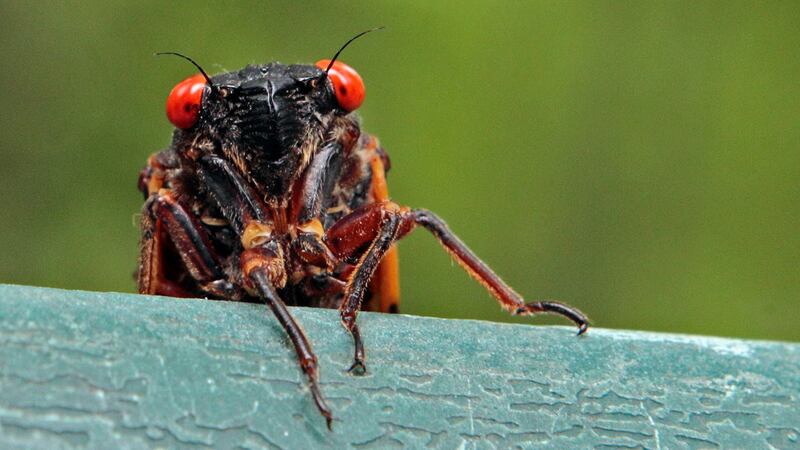ATLANTA — Experts say two groups of cicadas are going to be making an appearance across the Midwest and the Southeast this spring.
These black bugs with bulging eyes differ from their greener-tinged cousins that come out annually. They stay buried year after year, until they surface and take over a landscape, covering houses with shed exoskeletons and making the ground crunchy.
This spring, an unusual cicada double dose is about to invade a couple of parts of the United States in what University of Connecticut cicada expert John Cooley called “cicada-geddon.”
The last time these two broods came out together was in 1803 Thomas Jefferson, who wrote about cicadas in his Garden Book but mistakenly called them locusts, was president.
If you’re fascinated by the upcoming solar eclipse, the cicadas are weirder and bigger, said Georgia Tech biophysicist Saad Bhamla.
“We’ve got trillions of these amazing living organisms come out of the Earth, climb up on trees and it’s just a unique experience, a sight to behold,” Bhamla said. “It’s like an entire alien species living underneath our feet and then some prime number years they come out to say hello.”
RELATED STORIES:
- Pictures show thousands of cicadas emerging in Blairsville
- Swarm of cicadas of ‘biblical proportions’ could bring venomous snakes along with them
- Hear that sound? More cicadas than usual could find their way into north Georgia
The largest geographic brood in the nation -- called Brood XIX and coming out every 13 years -- is about to march through the Southeast, having already created countless boreholes in the red Georgia clay. It’s a sure sign of the coming cicada occupation. They emerge when the ground warms to 64 degrees, which is happening earlier than it used to because of climate change, entomologists said. The bugs are brown at first but darken as they mature.
Soon after the insects appear in large numbers in Georgia and the rest of the Southeast, cicada cousins that come out every 17 years will inundate Illinois. They are Brood XIII.
The numbers that will come out this year – averaging around 1 million per acre over hundreds of millions of acres across 16 states – are mind-boggling. Easily hundreds of trillions, maybe quadrillions, University of Connecticut cicada expert John Cooley said.
They don’t harm people or pets, and scientists say not to kill them.
The only things cicadas can harm are young trees if they climb up them and try to plant eggs on weak, young limbs. Experts say netting young trees protects them.
Once they die off, you won’t see this particular brood of cicadas until 2041.
The Associated Press contributed to this article.
©2024 Cox Media Group






